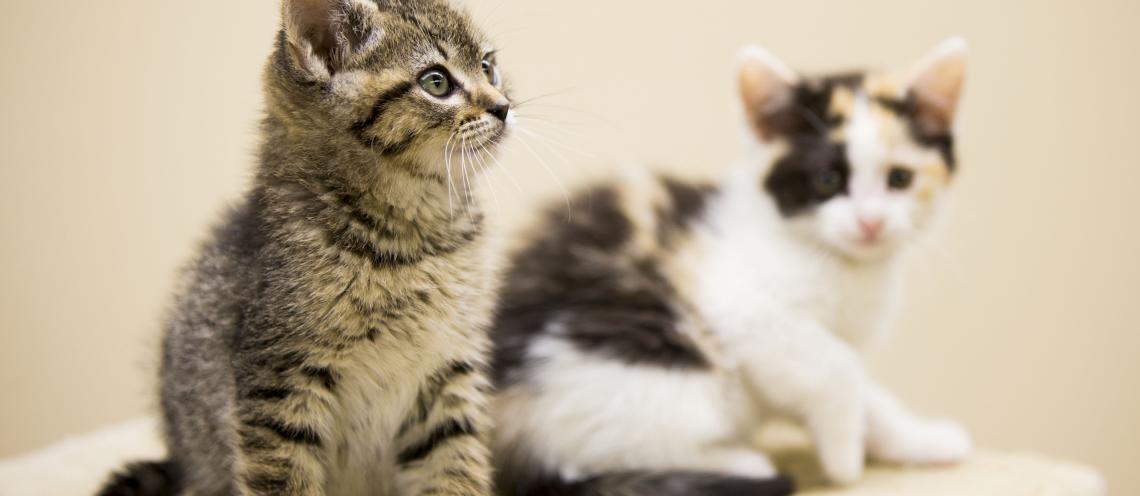
Veterinary Viewpoints: How to know when kitty is sick
Wednesday, April 15, 2015
According to a cat wellness website, your cat may provide several signs that it is not feeling well. To help owners identify when it may be time to call the veterinarian, here are some tips that things may not be OK with your cat.
Changes in interactions — your independent cat becomes “Velcro” kitty or your normally friendly cat hides. These changes in interaction can be signs of disease, fear or anxiety. For example, combing over arthritic hips may cause your cat to spit, hiss and run away in response to the pain.
Activity levels — arthritis and other health issues may slow your kitty down. On the other hand, certain metabolic problems can increase your cat’s activity.
Changes in chewing or eating habits can be cause for concern. Eating less can be caused by several disorders ranging from dental problems to cancer. Sudden increases in appetite may be associated with diabetes, hyperthyroidism and other health problems.
Unexpected weight loss or gain does not always follow appetite. Cats with diabetes or hyperthyroidism may lose weight even when they are eating more.
Changes in water intake can be difficult to track in cats that drink from the toilet or sinks. Drinking more or less water can be an indicator of health problems such as kidney disease or diabetes.
Dental or gum disease can contribute to bad breath. Studies show that 70% of cats have gum disease by age 3. Regular dental checkups at the veterinarian can help prevent this. Digestive disorders, infections, or kidney disease can also contribute to bad breath.
Changes in grooming habits — cats tend to let themselves go a bit when they are not feeling well. Conversely, they may over groom due to stress, pain or skin conditions.
If you cat starts catnapping more often or waking you up in the middle of the night, it could be a sign that your kitty is not feeling well.
Another sign that there may be a problem is when your normally quiet cat begins vocalizing. This could be because of pain, hyperthyroidism, high blood pressure or anxiety.
Cats like routine. Changes in your family schedule, new pets coming or going, even rearranging the furniture can cause stress. A cat that isn’t feeling well may be anxious as a result.
Geriatric cats may be especially prone to stress. Anxious cats may exhibit behavioral changes, such as missing the litter box, and physical changes.
Stressed cats may demonstrate decreased grooming and social interaction, spend more time awake and scanning their environment, hide more, withdraw and exhibit signs of depression, or have an increased or decreased appetite.
A cat that is urinating inappropriately may have cystitis (inflammation of the bladder), kidney disease or diabetes. It can also be a sign of arthritis, which makes it difficult to get in and out of the litter box.
If for any reason you feel your kitty may not be feeling well, the best advice is to consult your veterinarian.
by Elisabeth J. Giedt, DVM
Veterinary Viewpoints is provided by the faculty of the OSU Veterinary Medical Hospital. Certified by the American Animal Hospital Association, the hospital is open to the public providing routine and specialized care for all species and 24-hour emergency care, 365 days a year.
